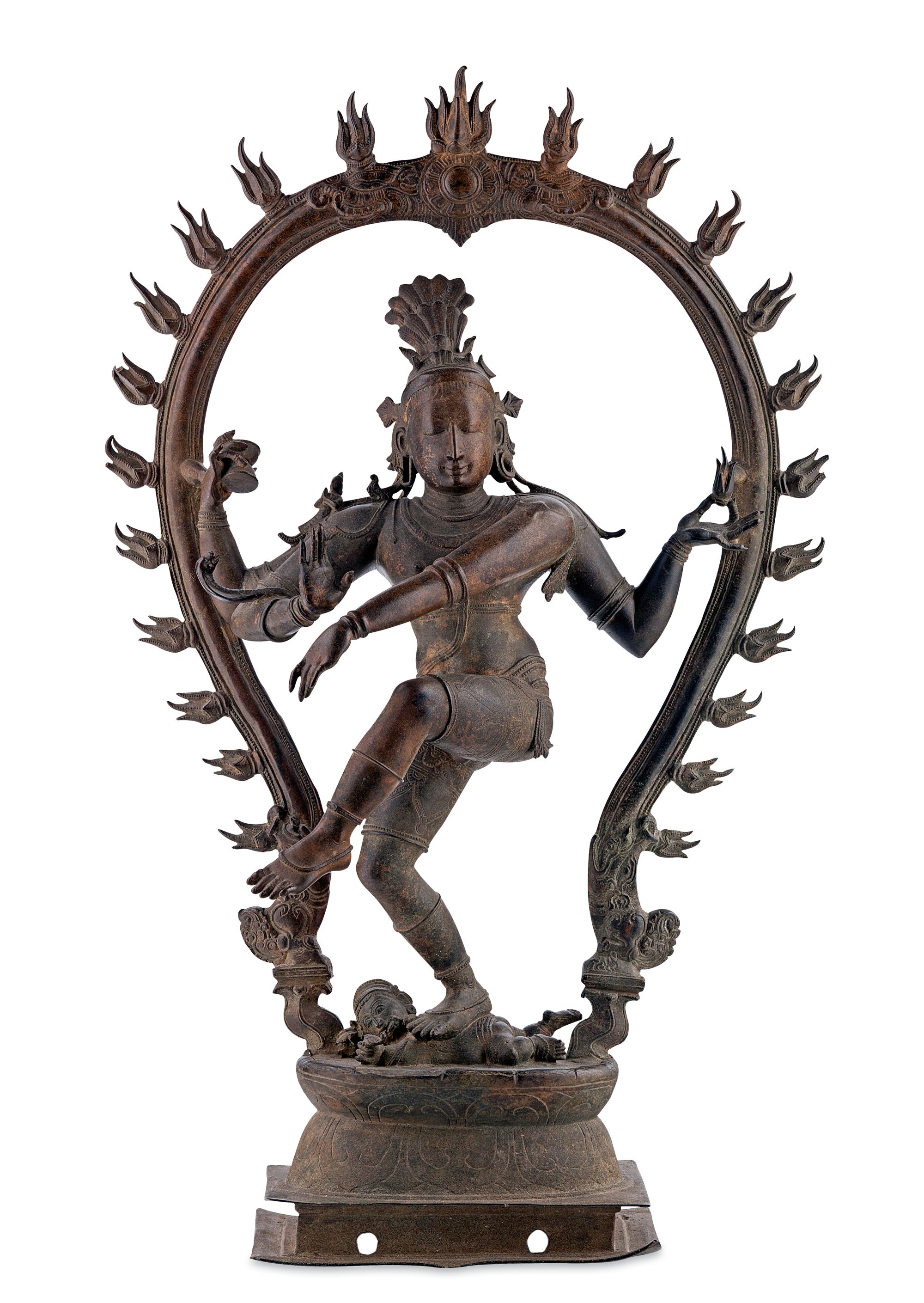A 500-year-old statue of a Hindu deity on display in an Australian art gallery has been identified as a stolen artifact, opening up the possibility it could be returned to India, the gallery has confirmed.
The 16th century statue of Siva Nataraja, or Dancing Shiva, owned by the Art Gallery of South Australia (AGSA) in Adelaide, was identified in a 1958 photo as one that went missing from a temple in the Indian city of Nellai in the 1970s, according to a report in Australian state broadcaster ABC.
The statue was one of four stolen from the temple when thieves broke a lock to gain entry, the report said.
Though it is thought to have been stolen in the 1970s, it wasn’t reported missing until 1982. A police investigation at the time failed to identify any suspects.
In a statement, the AGSA said it was “continuing its proactive role in the research” of the statue, adding that it was identified as stolen in September 2016 due to ongoing research undertaken by the gallery’s Asian Art curator.
AGSA says it will cooperate with all relevant parties to determine the next step, which “may well include the repatriation of the object.”
The statue still is listed in the gallery’s online catalog.
Indian authorities are preparing a formal claim to repatriate the statue, according to S. Vijay Kumar, co-founder of the India Pride Project (IPP), a global network of volunteers which tracks down and repatriates Indian heritage works.
“The Indian and Australian authorities are already in discussion. From our side, we have submitted the paperwork and Australia has 30 days to refute (the claim).”
Kumar, an amateur temple art investigator and author of book “The Idol Thief,” said that the AGSA had positively identified the object from archive photography in 2016.
“It’s shocking that they waited almost two years knowing very well they had a suspect object. The argument they put forward is that the photo in the archive was taken in 1958 but still that doesn’t say much about their own ethics,” he told CNN.
“A stolen object continues to be a stolen object and India has its own antiquity laws.”
The repatriation process will involve the federal governments of both countries.
The ABC reported that the gallery had purchased the 76 cm (30 in) tall, 100 kg (220 lb) artifact in 2001 with AUD 436,000 (around $330,000) in donated funds. The gallery had identified 24 potentially problematic pieces in its collection; the Shiva statue is the first one to have been claimed by India.
Documents seen by the Australian broadcaster say that the piece was bought, through British brokers, from a private European collector.
Lost and found: Incredible works discovered
Then-director Ron Radford has repeatedly sought assurances from the brokers that the piece was not stolen, the report says, but the dealers claimed its owner was “vague” about its provenance.
Documents prepared for the AGSA board of trustees showed that Radford had failed to obtain proof of ownership, the ABC reports. AGSA’s acting director Lisa Slade told ABC that the gallery had not yet sought a refund from the dealers.
The AGSA Shiva statue is not the first time that the Australian government has bought stolen Indian artifacts.
A report from the IPP shows that a $5 million Shiva statue, was bought by the country’s National Gallery from New York-based dealer Subhash Kapoor and his gallery manager, Aaron Freedman.
Freedman’s guilty plea in a New York court confirmed that the Shiva was the property of the Central Government of India and was stolen from a Shivan Temple in India’s Ariyalur District in Tamil Nadu state, IPP documents show.
An 2013 Indian Ministry of Culture investigation confirmed “several examples of antiquities of national importance being sold and displayed abroad.”
From 1976 to 2001, 19 antiquities had been repatriated “either through legal means, indemnity agreement, voluntary action or through out of case settlement.”
However it adds that since 2001, the ASI has “not been able to achieve any success.”




























